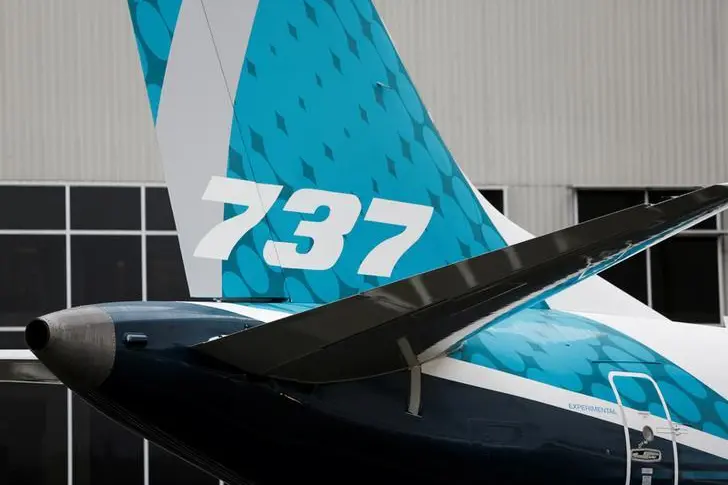PHOTO
NEW YORK - Boeing's belatedly grounded jets are an apt symbol of the erosion of U.S. soft power. After saying there was no problem in the wake of two crashes, the most recent on Sunday, the Federal Aviation Administration on Wednesday grounded Boeing’s 737 MAX 8 and MAX 9 aircraft. The FAA usually shows the way, but many other governments had already banned the planes.
Soft power, the influence a country wields though its cultural, technological and economic strength, is difficult to measure. Yet blue jeans, computers and movies were potent weapons for the United States during and after the Cold War. President Donald Trump’s America First mantra and policies have eroded that edge somewhat, with the country falling to fourth in the Soft Power 30 ranking last summer, from top of the list just two years earlier.
Aviation is a good example. American planes are sold worldwide. The nation’s technological base allows Boeing and suppliers to keep near the forefront of advances in materials and software. Other countries respect that advantage, and overseas regulators usually follow FAA decisions – for example in approving new aircraft made by Boeing.
In the 737 MAX case, the FAA was a laggard. When close U.S. allies with a reputation for sober regulation, like the UK and Canada, banned flights, it became harder to shake off concerns that the U.S. watchdog was holding out for the wrong reasons.
That the top three positions at the FAA are all currently awaiting permanent occupants and acting Administrator Dan Elwell was once a lobbyist for airplane manufacturers is not unusual in today’s Washington. But hands-off governance and revolving doors can only further reduce other governments’ confidence.
A study of people in 25 nations by the Pew Research Center published in October showed America’s image declining, with 70 percent of the respondents expressing no confidence in Trump’s leadership and a similar proportion believing the United States takes little to no account of the interest of other countries.
It’s too early to know what really factored into the two Boeing crashes, but it’s hard not to think a different FAA would have taken a more proactive approach. Others essentially did the job in its place. Even allies
CONTEXT NEWS
- The U.S. Federal Aviation Administration said on March 13 it would ground Boeing’s 737 MAX 8 and MAX 9 aircraft, following similar action by governments and airlines around the world in the wake of crashes in Ethiopia on March 10 and in Indonesia in October. The European Union, China, India, Canada and dozens of airlines had earlier banned flights by the aircraft.
- The move, which the FAA said was the result of new evidence, was announced by President Donald Trump to reporters at the White House. Boeing said it had full confidence in the safety of the 737 MAX but had decided to recommend to the FAA the temporary suspension of operations after consultation and “out of an abundance of caution.”
- The FAA had said on March 12 that, although it was reviewing the issue, it would allow the planes to remain in service.
- Ethiopian Airlines said on March 13 it would send the crashed plane’s black boxes to Germany for analysis.
(Editing by Richard Beales and Martin Langfield)
© Reuters News 2019





















